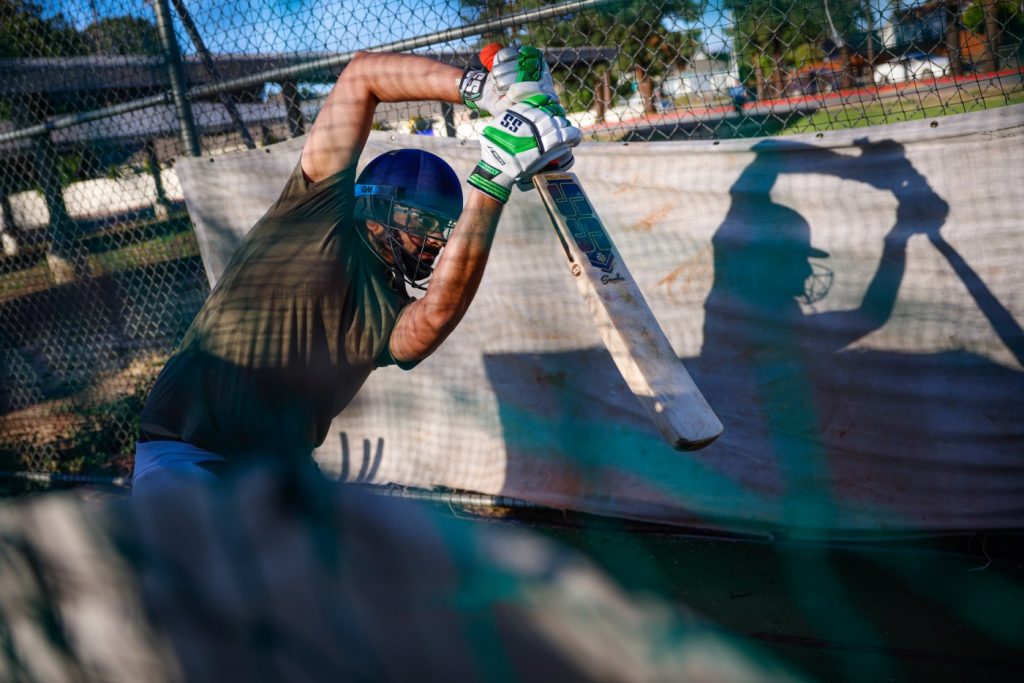SANTA CLARA — Prakash Giri, the president of the Northern California Cricket Association, is a cricket lifer. A day rarely goes by without the game he loves crossing his mind. As one of Giri’s colleagues jokes, “Out of 24 hours in a day, he puts in 25.” Giri fully understands, then, the gravity of the United States cricket team’s historic, unprecedented run this month.
“These are moments that can change the game, how it’s perceived,” Giri said. “I think history will remember this.”
Despite qualifying for the ICC Men’s T20 World Cup only because of their host status, the Americans are shocking the cricket landscape in their first tournament appearance. After beating Canada, the United States upset heavily favored Pakistan, then impressed for putting up a valiant effort in a loss to top-ranked India. Despite its underdog status, the U.S. has advanced to the Super Eights, automatically qualifying for the 2026 World Cup. In 2028, the Americans will host the Summer Olympics.
Though the first international cricket match is credited with having been played in New York in 1844 when a U.S. club played a team from Canada, America does not have a rich cricket history. That seems to be changing in real time. For those who love the “gentleman’s game,” they’re relishing the opportunity to see their game get its time in the sun.
“I think it’s only going to get better from here,” Giri said.
Among those who have felt the buzz is Rajendra Badadare, who coached batsman Steven Taylor with the U15 national team. Badadare, who lives in Foster City, recalled neighbors and city council members reaching out to him following America’s upset over Pakistan. Badadare shared that his daughter, who attends Cal Poly SLO, began fielding questions from her friends about cricket in recent weeks as well.
“It’s been the talk of the town,” Badadare said. “Even though cricket is not a local sport, it’s being discussed locally.”
On June 29, the NCCA, which spans from Sacramento through the Bay Area to Fresno to Fresno, will host a watch party for the World Cup finals at Ohlone College in Fremont. Among those planning to be in attendance is Sunil Gavaskar, the former captain of the Indian national cricket team and considered to be the greatest opening batsman of all-time. Though Gavaskar currently lives in India, he is visiting the Bay Area specifically for the watch party, as well as another event. The hope, of course, is that the United States, which features 32-year-old bowler Saurabh Netravalkar who works as a software engineer at Redwood Shores’ Oracle, is there to represent in the finals.
“The underdogs are the feel-good story in American sports,” said Ganesh Sanap, a former NCCA president. “We don’t have resources. If you see what international quality is compared to what we have, we are nowhere in the picture. But these boys, with all our years of resilience, as they say, everything is falling in place.”
The United States, currently ranked No. 17 in the T20, is turning heads for a reason. Cricket’s popularity lags well behind that of other sports, and that second-tier status is reflected in numerous ways.
Related Articles
How to watch US cricket team’s T20 matches on TV
US cricket team advances to second round in Twenty20 World Cup debut at Pakistan’s expense
U.S. cricket team recovers from poor start but loses to India at Twenty20 World Cup
Oracle’s Netravalkar relishes big cricket moment as U.S. faces India, his country of birth
How to watch USA-India cricket match in T20 World Cup
To Giri, the single biggest challenge that cricket faces in America is infrastructure. Proper cricket fields require roughly four acres of land, but those spaces typically go to other sports. There are plans for Santa Clara County to build a cricket stadium at the county’s fairgrounds. But as of now, the Bay Area doesn’t have a single dedicated cricket field.
“You need a good, fast outfield where the ball travels when they hit the ball,” Giri said. “Unfortunately, we lack the facilities here in the Bay Area. That’s been our biggest challenge because of limited open space. There’s a lot of other parts of the country, be it the big metropolitan cities like Atlanta, Houston, Dallas and L.A. that are getting bigger, much better fields.”
Wilson Field, located behind Santa Clara’s Wilson High School, exemplifies the hurdles that the NCCA faces. While a normal cricket field is entirely grass, Wilson Field partially encompasses the baseball field’s infield dirt, similar to how the Raiders had to share the Coliseum with the A’s. Additionally, the NCCA can only use the field on weekends when school is in session.
The lack of available space doesn’t just make playing difficult, but practicing as well. There are several indoor practice facilities in the Bay Area, one being the US Cricket Store in Milpitas, but the number pales in comparison to those dedicated to baseball. The batting cages at the aforementioned Wilson Field are used for practices, but the cage’s synthetic surf cannot replicate how a ball bounces off grass when pitched.
Despite these challenges, Giri believes that cricket’s popularity in the United States has steadily risen in the last five years, and looking forward, Giri sees plenty of means for the game to keep growing in America.
In 2021, Minor League Cricket, a 26-team, semi-pro league, launched. In 2023, Major League Cricket began play, too. Pat Cummins, the captain of Australia’s national team in Test and One Day International cricket, signed a four-year contract with the MLC’s San Francisco Unicorns, becoming one of the league’s highest-profile players.
Earlier this month, California Assemblymember Ash Kalra introduced ACR211, which would “urge the California Interscholastic Federation to take steps towards officially recognizing the game of cricket in California and recognize the historical significance of cricket and the pioneer state cricket players.” Along with the youth participation, Badadare helped launch Masters Cricket USA, an association for players over 40, in 2022. Badadare, one of the three co-founders, pointed out that while the association is for older players, it can still expose the sport to the next generation.
The U.S. opened the Super Eights with a loss to South Africa on Wednesday. The Americans will play West Indies on Friday and England on Sunday.
Even if America’s run ends in the Super Eights, the team has already made history. In the not-too-distant future, Giri hopes the United States can evolve from underdog to top dogs.
“With minimal infrastructure, we’ve gotten big in the United States,” Giri said. “If we have more infrastructure, more pathways, more support at the grassroots level, we can be No. 1 in the sport.”


